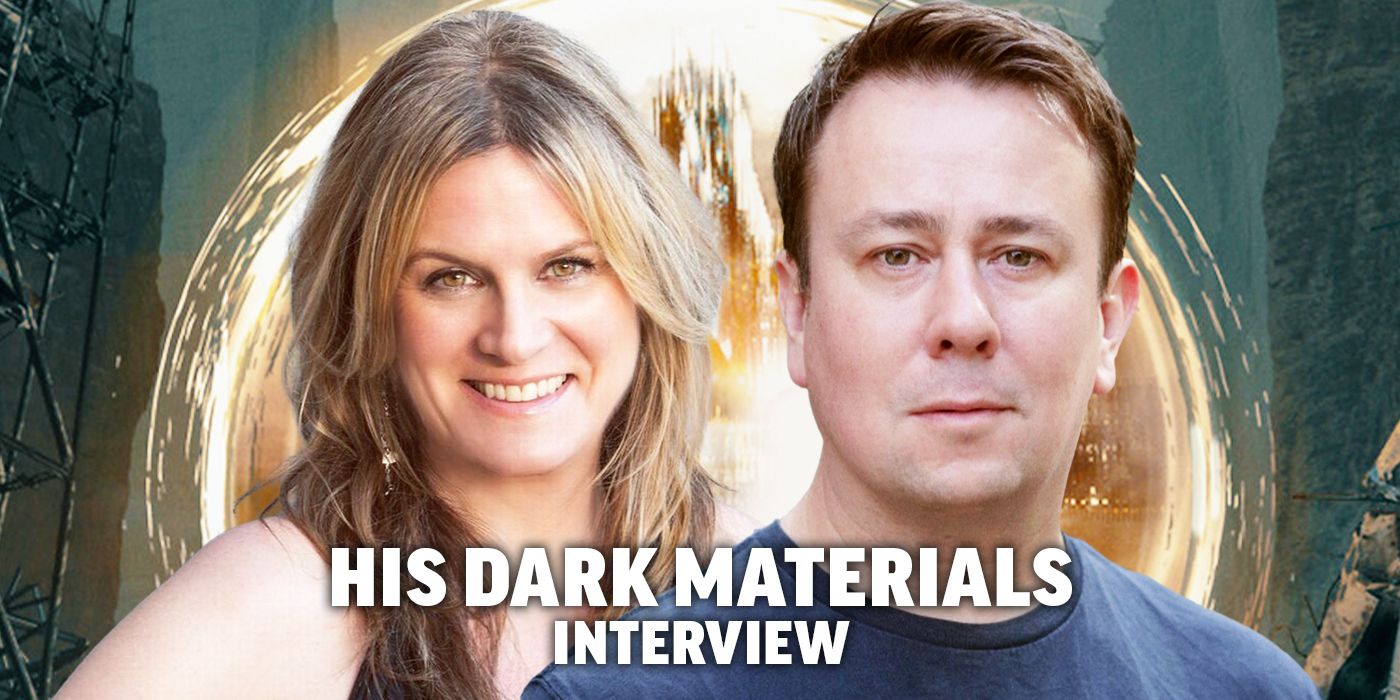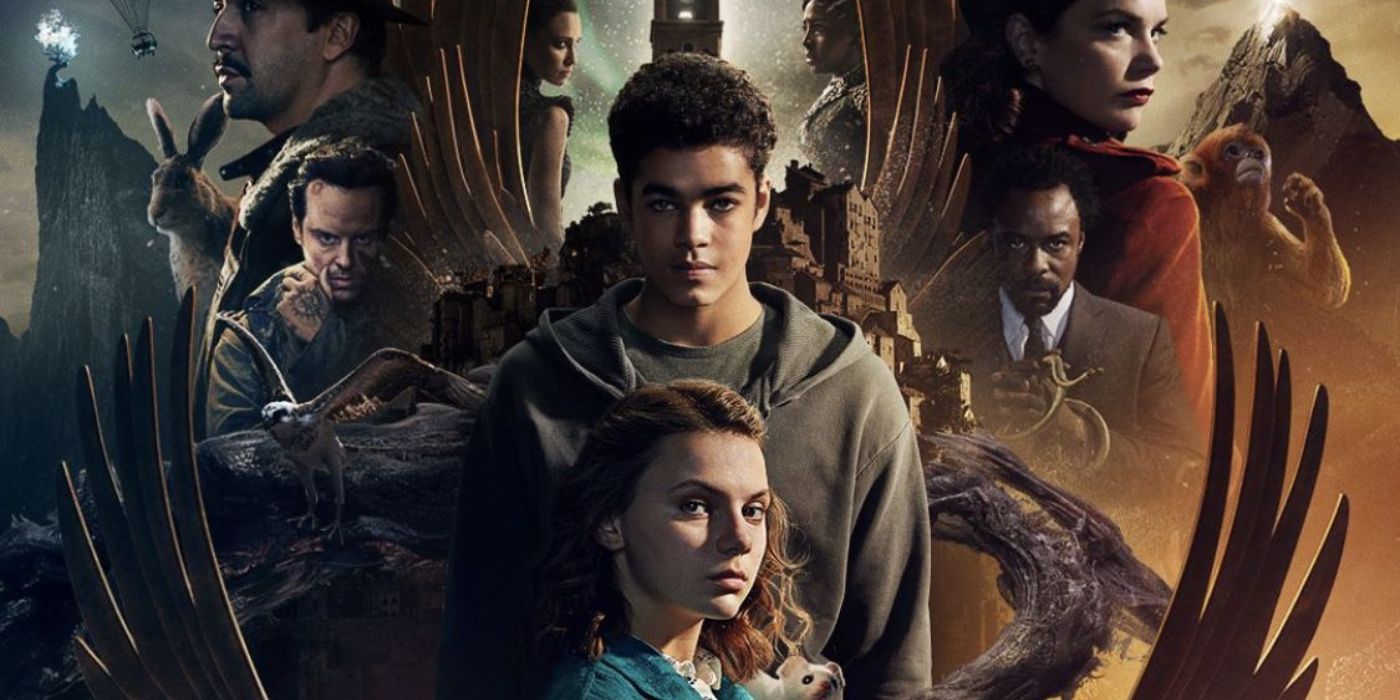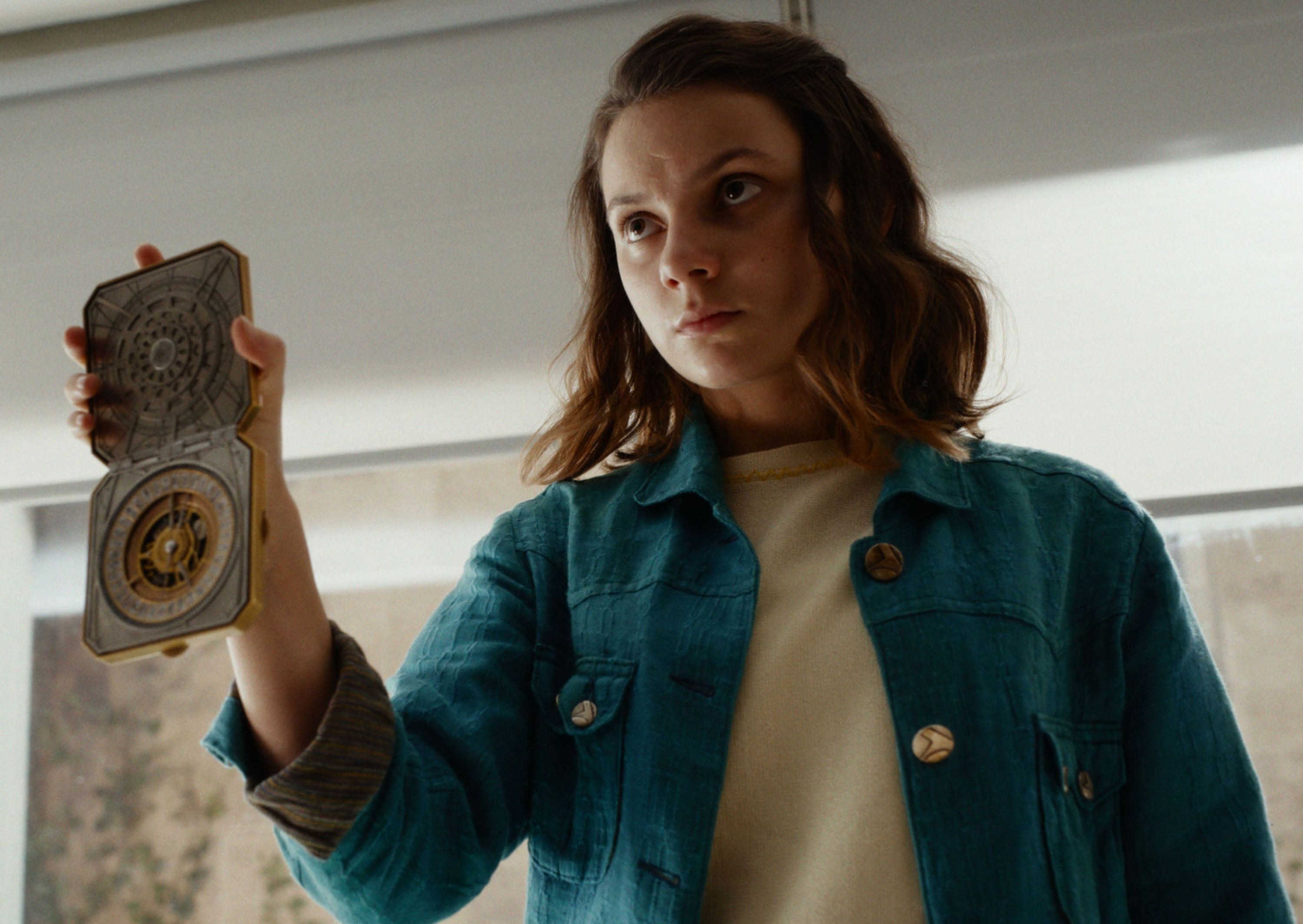[Editor’s note: The following contains some spoilers for Season 3 of His Dark Materials.]
The eight-episode third and final season of the HBO series His Dark Materials, based on author Philip Pullman’s The Amber Spyglass, follows Lyra (Dafne Keen) and Will (Amir Wilson) on their journey to The Land of the Dead, a dark place from which no one has ever returned. At the same time, Lyra’s parents, Mrs. Coulter (Ruth Wilson) and Lord Asriel Belacqua (James McAvoy) begrudgingly come to understand that working together may be the only way to succeed in their ultimate goals.
During this interview with Collider, executive producers Jane Tranter and Dan McCulloch talked about how satisfied they are with the story they were able to tell, the heart-wrenching and profound impact the final season had, whether they’d like to continue telling stories in this world, getting to close the loop on previously unfinished aspects of the story, and the challenge of incorporating angels into the show.
Collider: How does it feel to have officially closed the book on telling this story and shooting this series? Does it feel complete to you guys? Do you wish you’d had more time? Does it ever feel complete?
JANE TRANTER: That’s such a good question. I think we’re really satisfied that we managed to finish the trilogy and that we managed to answer all the questions that Season 1 and Season 2 had asked. We managed to tackle some of the significant challenges, both in terms of the adaptation and the rendering of mulefa or Gallivespians, or angels, to the screen for the third season.
For me, the challenge was always that there were a lot of physical, complicated production things to do that we had to make resonate. We had to ensure that an audience would never look at a bench like that again, without feeling love and loss, and thinking about Lyra and Will. I hope we have done that, at the end. So, I would say it feels good. Are there things we’d like to go back and do again? Yes. We wouldn’t be good producers if we didn’t look back and think, “Oh, my God, what were we thinking?” But for me, the key thing is would we want to go on and do more? Have we left ourselves still wanting more? And I would say the answer to that is, “Definitely, yes.” We would love to go on and do more, if we get the opportunity to do it. If we didn’t feel satisfied with the third season, we wouldn’t feel like that.
Dan, you’ve called Season 3 heart-wrenching, emotional, and incredibly profound. What sort of impact has this series, and this season in particular, had on you, and how do you hope audiences will react to it?
DAN McCULLOCH: The impact it had on me was heart-wrenching and profound. The thing that excites me the most, about the promise of what’s to come, is the idea that so much of watching TV and understanding TV is done individually. You watch something on your own, and maybe you’ll go out and read something about it, and maybe you’ll tell someone at work, but I feel with His Dark Materials, families watch it together because they have two very different viewpoints that are often separated by age. What a child thinks about it versus an adult is something I don’t think I’ll ever get bored of. You see it with (author) Philip [Pullman] when he’s engaging with his audience, and he’s talking to fans of the book. Everybody has their point of view and perspective. Everybody has that little bit of ownership. We’ve had our little bit of ownership now, for a couple of years. So, to see it shared, digested, understood, and discussed, there is no better feeling. It makes up for the fact that the ending is so utterly gut-wrenching and heartbreaking. It’s the idea that you get to tell bits of the story again, and repeat your favorite bits and bits that you love, and talk about Lee and Roger, and talk about seeing your first airship versus your first intention craft. I feel like, if you’re coming to the third series fresh, then you’ve got an incredible two seasons ahead of that to watch, enjoy, and get involved in the discussion with.
Have you guys had any actual conversations about continuing telling stories in this world? Obviously, there is The Book of Dust series, and it seems like there are endless possibilities for spinoffs. Have you had actual conversations of what you would want to do, if you were able to continue this?
TRANTER: We have been working with Philip Pullman on this, and we love Philip and are enormous admirers of his work. He’s currently completing The Book of Dust trilogy. We’ve made no secret of the fact that we would love to adapt The Book of Dust trilogy. He needs to finish it. I think it is a great benefit to a trilogy to have the last book in place, so that when you go back to the first, you can make sure that you lay all the pipe. That puts you at a real advantage, having a complete trilogy to do. So, we would absolutely love to do that. Who wouldn’t want to find out what Lyra and Pan are up to, at age 20? And who wouldn’t want to find out what it was that took Lyra to Jordan College? What forces ensured that Lyra got brought up in Jordan College? So, yes, we’d love to do more. Jack Thorne’s made no secret of the fact he’d love to adapt Once Upon a Time in the North. If Philip finishes, and if audiences say, “Please, we want some more,” then we’re here, standing by, ready and waiting.
This season, there are so many questions answered, storylines circled back to, and characters that get to come back. What was it like to be able to circle back to some of those story points and really be able to close those loops, in a lot of ways?
McCULLOCH: It’s a once in a lifetime opportunity. You don’t get to tell those kinds of stories in television. If you did, it would be some other world of a soap opera, where someone’s dead cousin comes back, or something surprising, just for the sake of story. What Pullman did with this is that he made his main character face far braver decisions than her parents ever did, and do it for the right reasons, not just for selfish reasons. So, the idea that you get to come full circle from some of these loved characters that are full, real characters, that you have missed, you might, in your own life, want to do that. There are people that you want to say goodbye to, one more time, that you might not get given the chance to. In some ways, His Dark Materials gives you a bit of hope of that. It gives you a hope that there is a real, true circle of life. It’s on a much bigger, more infinite scale, but it’s still there, and it’s something that Pullman really, deeply believes in. He really believes in dust, and this is just one story of that.
How daunting is it to take on something like angels, where you have to figure out how to bring them to life visually, but then you also have to write for them, and find actors who can embody them? What was that process like, of bringing all of that together?
TRANTER: I think that was the most difficult process in the third season. We always assumed that the mulefa would be tricky, and we wondered how on earth we were gonna do the Gallivespians. But actually, there were loads and loads of really clever, talented, creative people who’d been thinking about that, right from Season 1. We were anticipating what was going to come. With the angels, we hadn’t. Because they’re given such character in the pages of Philip’s book, we just thought, “Oh, that’s fine. We’ll just adapt those.” And then, you realize that you can’t actually do that because otherwise you have CGI beings do all of these very emotional scenes. You really want to understand Balthamos’ feelings with the loss of Baruch. We knew we had to find a way to be able to give the angels human form, so that we could get actors in there who could get all this across. But on the other hand, we also wanted to have the fun. They’ve got to be angels. They’ve got to fly. They’ve got to be celestial. We also knew that we’ve got all of the baggage that an audience brings with it, when you talk about angels, and you talk about the Kingdom of Heaven and what that means.
That’s part of the reason why we have that very artistically represented legend, at the very start of episode one. We felt that we needed to reframe the third season and normalize, if you like, the fact that we were going to be talking about angels, dark angels, rebel angels, the Authority, and the Kingdom of Heaven. It’s not been the stuff of the series, up to that point. It’s a whole new introduction. So, we had to work very carefully not to have it land too heavily, so it crushed everything else. You’ve cannily put your finger on the very thing that was the most difficult thing for us. It’s normally overlooked because everyone’s looking at mulefa, or something else, but that really was the single most important thing.
His Dark Materials airs on Monday nights on HBO and is available to stream at HBO Max.



